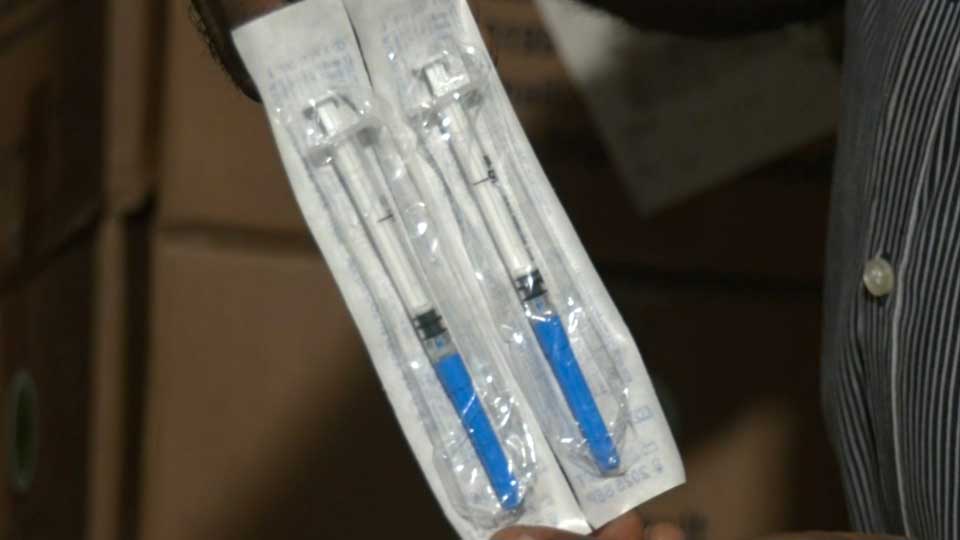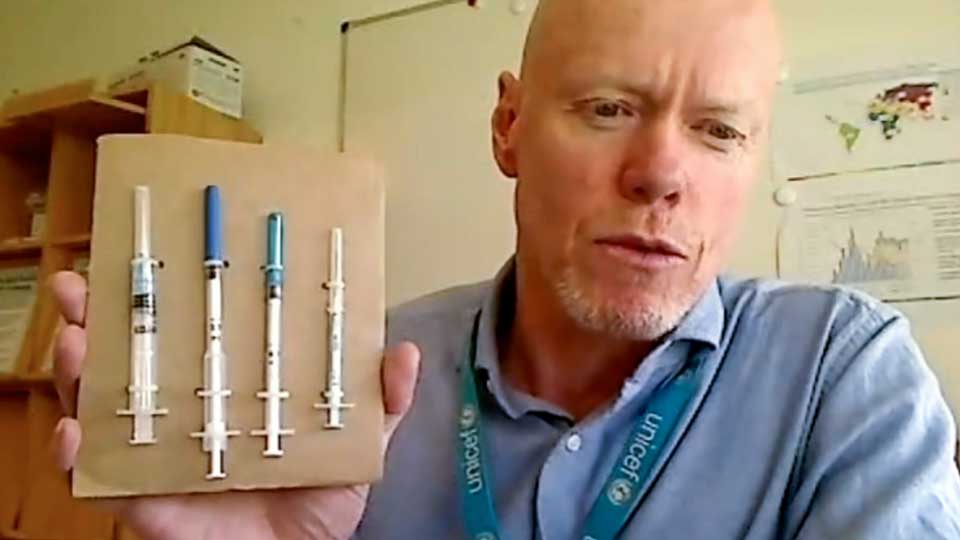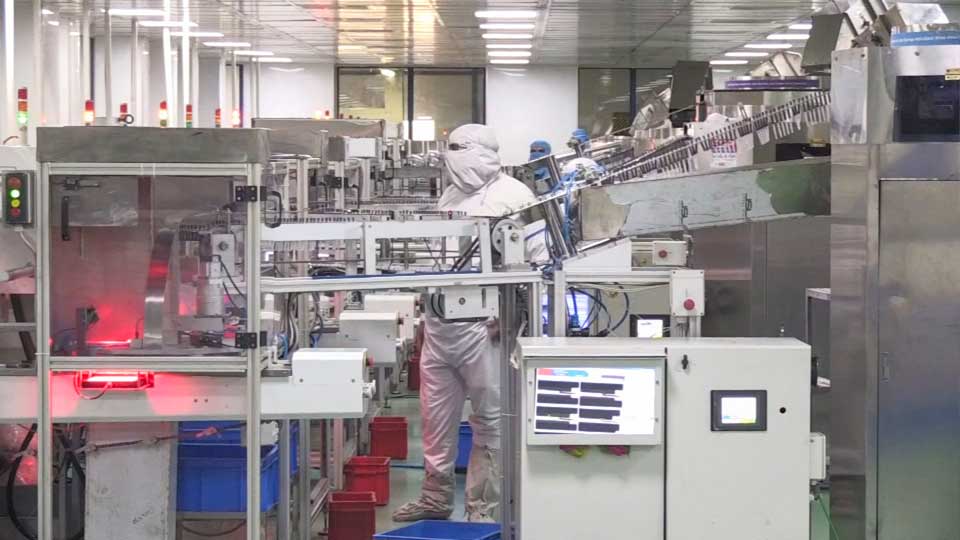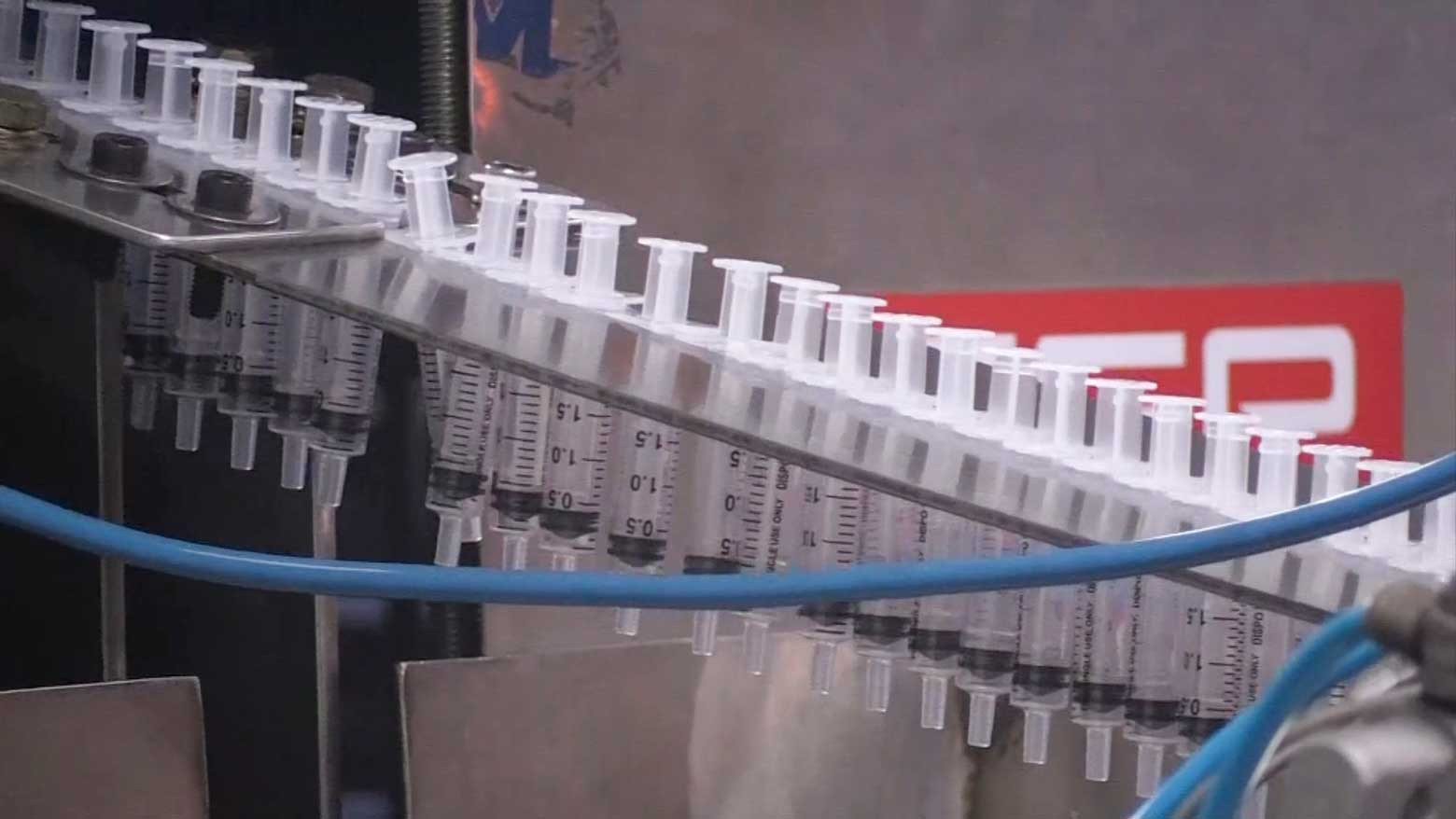As unprecedented demand has led to worries of a global shortage, the United Nations Children’s Fund, or UNICEF, has launched a new initiative to secure supplies.
One of the first countries that received syringes from the program was Sao Tome and Principe, an island nation in the Atlantic Ocean with a population of about 220,000 and a largely agriculture-based economy. The UN categorizes it as one of the most impoverished countries in the world.
The delivery arrived in February, ahead of the country's vaccination rollout. "Syringes and the vaccine go together as a pair," says Dr. Edgar Neves, Sao Tome and Principe's Health Minister. "We were able to secure syringes this time. But now, the world faces the difficulty of securing syringes."

UNICEF plans to procure one billion syringes for COVID-19 vaccine delivery to up to 100 economies by the end of this year. But Robert Matthews, head of the Medical Devices Unit in UNICEF's Supply Division, warns supply is tight.
"This year, we've also got supply agreements in place for another two billion syringes," he details. "We're doing that to supply both our routine immunization demand, as well as additional demand for COVID vaccination."

Production struggles to match demand
Nearly 30 percent of the syringes that UNICEF delivers are made in India. One manufacturer, Hindustan Syringes & Medical Devices, has increased the number of production lines and is operating at full capacity to meet demand.
The company has expanded its output from 500 million units per year to 900 million – with its annual production target set to increase to 1.2 billion by September. The plan faces several months' delay due to travel and trade restrictions caused by the spread of the coronavirus in India and around the world.
"We could have stepped it up faster," says managing director Rajiv Nath. "In many cases, there are technical problems [due to the recent surge of infections], and what could normally have been done in maybe one or two weeks, can take a month."

UNICEF has been stockpiling syringes since last year, so it is yet to deal with a shortage. But as science moves ahead to keep pace with the coronavirus and its mutations, it remains unknown how long the current vaccines will maintain people's immunity. That means the number of syringes and vaccines doses needed remain an unknown quantity.
"The question the suppliers and the manufacturers have is, well, exactly how much is going to be required," notes Matthews. "Nobody is able to tell us right now. Do we need a booster dose every year, or not? We don't have the answers to these questions."





